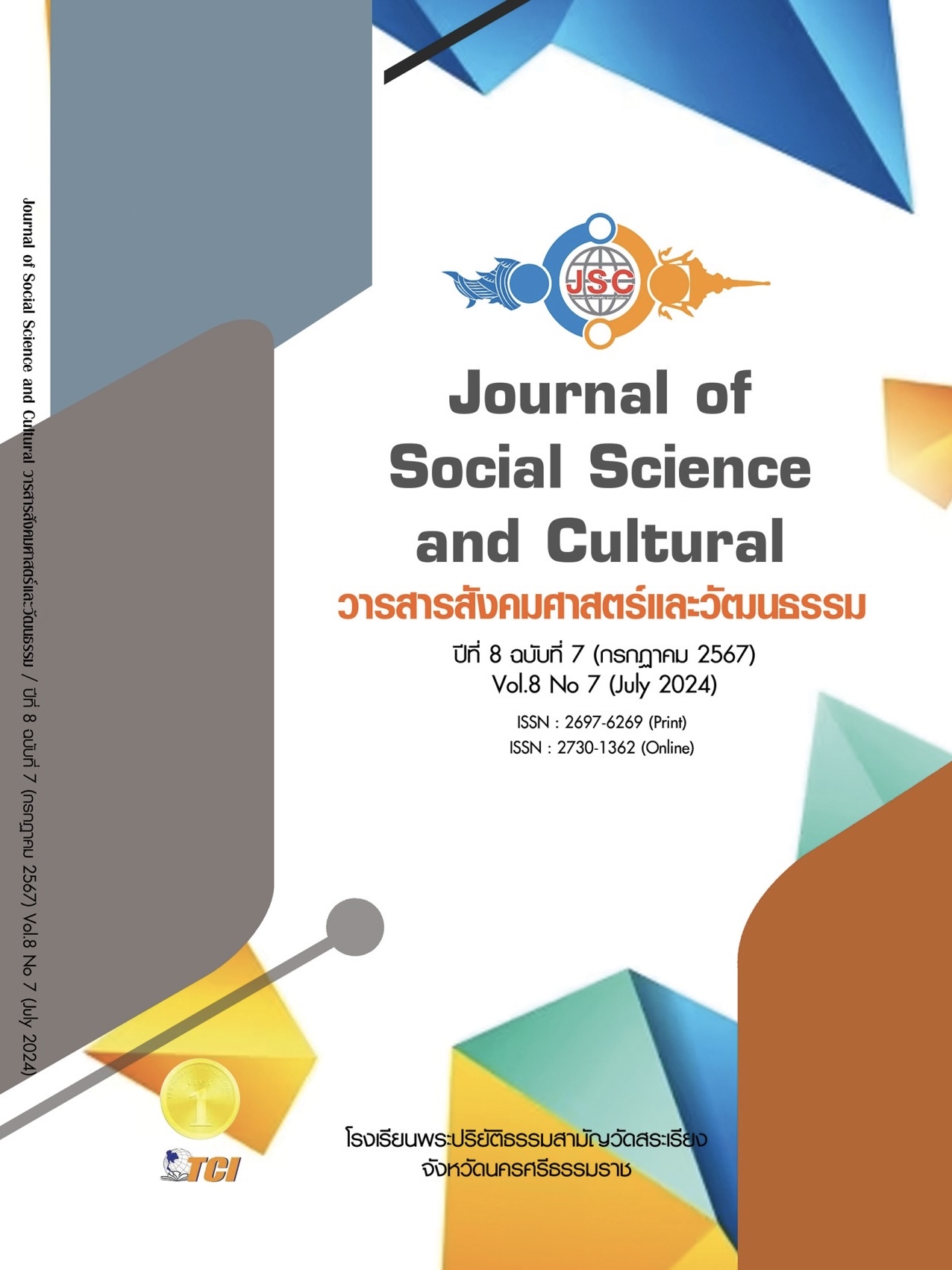BUDDHIST METHOD OF RISK MANAGEMENT IN COVID-19 OUTBREAK SITUATION OF PUBLIC HEALTH UNIT IN RATCHABURI
Main Article Content
Abstract
This research article aims to 1) to study the risk management in the situation of COVID-19 performed by Government Provincial Public Health service centers in Ratchaburi Province, 2) to study the movement of the risk management and Buddhist methods supporting to the management in the situation of COVID-19 and 3) to present the Buddhist methods in the risk management in the situation of COVID-19 of the Government Provincial Public Health Organizations in Ratchaburi Province. This is Qualitative Research by collecting the data from the deep intensive interview of 30 persons and to present the informative data in the form of Analytical Narrative Discussion. The research results are found that: 1) The risk management in the situation of COVID-19 of Government Provincial Health service centeers in Ratchaburi province in the way to solve the problems of abnormal infective disease with the measurement to protect and control the widespread of COVID-19 intensively. However, 2) The risk management process and Buddhist principles that promote management Risk is integrated into a framework. And 3) Propose Buddhist methods for managing risk in the COVID-19 outbreak situation in all 4 areas: 3.1) the ways to accept the risk integrated with the principle of mindfulness and concentration cultivating makes it possible to accept actual risks. 3.2) the reduction/the control of the risk integrated with 4 Bhavanas encouraging Create knowledge and understanding of risk management 3.3) the distribution of the risk integrated with the principle of 7 Sappurisadhamas makes it possible to understand the risk situation and 3.4) to avoid the risk integrated with the principle of 4 Iddhipadhas and having mindfulness to consideration of the decision to cancel the activities to abandon the risk of the situation of COVID-19.
Article Details
References
กรมควบคุมโรค กระทรวงสาธารณสุข. (2566). สถานการณ์ผู้ติดเชื้อโควิด-19. เรียกใช้เมื่อ 22 พฤษภาคม 2566 จาก https://ddc.moph.go.th/viralpneumonia/situation.php
กิตติ โค้วถาวร. (15 ก.ค. 2566). พุทธวิธีการจัดการความเสี่ยงในสถานการณ์การระบาดโรคโควิด-19. (ณัฏฐนาถ ศรีเลิศ, ผู้สัมภาษณ์)
จุฑามน สิทธิผลวนิชกุล. (2561). แนวทางการบริหารความเสี่ยงองค์กร COSO Enterprise Risk Management 2017. วารสารวิชาชีพบัญชี, 14(42), 111-124.
ณัชปภา โพธิ์พุ่ม และคณะ. (2564). รูปแบบการพัฒนาตนในวิกฤตสถานการณ์โควิด-19 ตามหลักพุทธธรรมของประชาชนในจังหวัดสุรินทร์. ใน รายงานการวิจัย. มหาวิทยาลัยมหาจุฬาลงกรณราชวิทยาลัย วิทยาเขตสุรินทร์.
ณัฐมา รองมาลี และพัทธ์ธีรา สมควร. (2563). แนวทางการบริหารความเสี่ยงระดับองค์กร. กรุงเทพมหานคร: สถาบันป้องกันควบคุมโรคเขตเมือง.
พระเทพโสภณ (ประยูร ธมมจิตโต). (2549). หัวใจนักบริหาร. กรุงเทพมหานคร: อมรินทร์.
พระครูโสภณธรรมวิภูษิต. (15 ก.ค. 2566). พุทธวิธีการจัดการความเสี่ยงในสถานการณ์การระบาดโรคโควิด-19. (ณัฏฐนาถ ศรีเลิศ, ผู้สัมภาษณ์)
ราชกิจจานุเบกษา. (2566). ประกาศสถานการณ์ฉุกเฉินในท้องที่ทั่วราชอาณาจักร เล่ม 137 ตอนพิเศษ 69 ง หน้า 1. เรียกใช้เมื่อ 22 พฤษภาคม 2566 จาก http://www.ratchakitcha.soc.go.th/DATA/PDF/2563/E/069/T_0001.PDF
ศศิจริญญา อำม์พรพันธ์. (15 ก.ค. 2566). พุทธวิธีการจัดการความเสี่ยงในสถานการณ์การระบาดโรคโควิด-19. (ณัฏฐนาถ ศรีเลิศ, ผู้สัมภาษณ์)
สหประชาชาติ. (2566). องค์การอนามัยโลกเตือนผลกระทบของ COVID-19 ต่อสุขภาพจิตน่าเป็นห่วงอย่างยิ่ง. เรียกใช้เมื่อ 22 พฤษภาคม 2566 จาก https://www.Pptvhd36.com/news
World Health Organization. (2566). สถานการณ์ข้อมูลผู้ติดเชื้อโควิด-19. เรียกใช้เมื่อ 22 พฤษภาคม 2566 จาก https://www.who.int/emergencies/diseases/novel-coronavirus-2019


